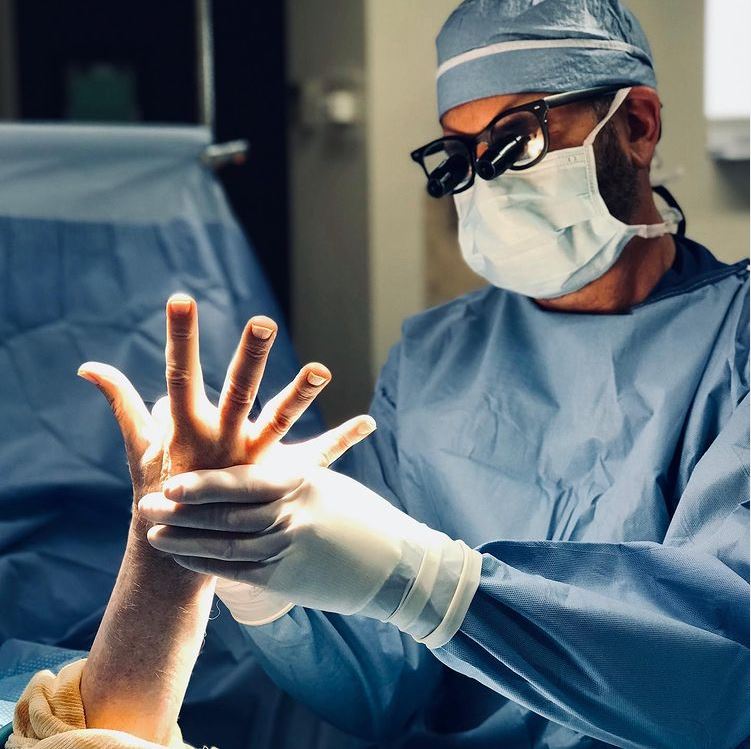
Dr. Raskin is renowned as one of the best hand surgeons servicing the New York City area with over twenty years of experience in diagnosing and treating a variety of hand conditions. His surgical expertise has transformed the lives of patients who have found their lives compromised by painful conditions, like carpal tunnel syndrome, Dupuytrens disease, hand arthritis and more. Below are some of the most common hand conditions that Dr. Raskin treats.
Carpal Tunnel Syndrome
If you have ever felt tingling, pain, or numbness in your hand and wrist, you are certainly not alone. Carpal tunnel syndrome is undoubtedly one of the most common hand conditions of the 21st century, with more than 8 million cases reported worldwide each year and this number rising steadily. Many experts suggest that this increase is due to the additional amount of stress placed on our wrists and hands as a result of excessive smartphone and computer usage.
The symptoms of carpal tunnel syndrome can range from mild to extremely debilitating. However, surgical intervention can alleviate any discomfort and restore mobility and function to the hand once more. For over twenty years, Dr. Keith Raskin at The Raskin Center for Hand, Wrist & Elbow Surgery in Manhattan, NY has successfully helped diagnose and treat patients with carpal tunnel syndrome…
Dupuytrens Disease
If one or more of your fingers curve inwards towards your palm, and you find it virtually impossible to straighten it out, then you could be one of the estimated 5% of the population that suffers from a hand condition known as Dupuytren’s disease.
This hand condition is often relatively manageable in the early days, but over time, many patients find that they are unable to straighten and effectively use their affected fingers at all, severely compromising their ability to enjoy life to its fullest extent…
Lacerations of Tendons and Nerves in the Hands
We use our hands for almost everything. As such, experiencing cuts and lacerations to them is far from uncommon. We also tend to instinctively throw our hands out to protect our face in situations where it may get hurt, such as if we fall over. While many cuts are superficial, deeper lacerations can pose a risk to the underlying tendons and nerves in our hands, which can affect how well we can use them.
This is because tendons and nerves are extremely important. The tendons, and in particular the ones in the palm side of the hands, known as the flexor tendons, contract and extend to allow us to move our fingers. If they become damaged, movement may be limited or even impossible…
Hand Arthritis
Arthritis is a condition that affects various tissues inside the joints, causing inflammation in a joint and its surrounding tissues. For arthritis sufferers, the cartilage between the joints is progressively worn down to such an extent that the bones start wearing against each other.
The hand has several small joints that work together to produce motion, including the fine motion needed to tie shoelaces or thread a needle. When arthritis affects the joints of the hand, it makes day-to-day activities painful and difficult…
Trigger Finger
Dr. Keith Raskin offers a wide variety of treatment options for trigger finger in NYC. This medical condition involves a finger getting stuck in a bent position as the motion of its tendon gets restricted. It then snaps back into a straight position. The restriction is caused due to the tendon sheath getting inflamed or due to the formation of a bump in this area.
This condition most commonly affects women. Other patients who are prone to it include arthritis and diabetes sufferers and people whose work puts a huge amount of strain on their hands…







